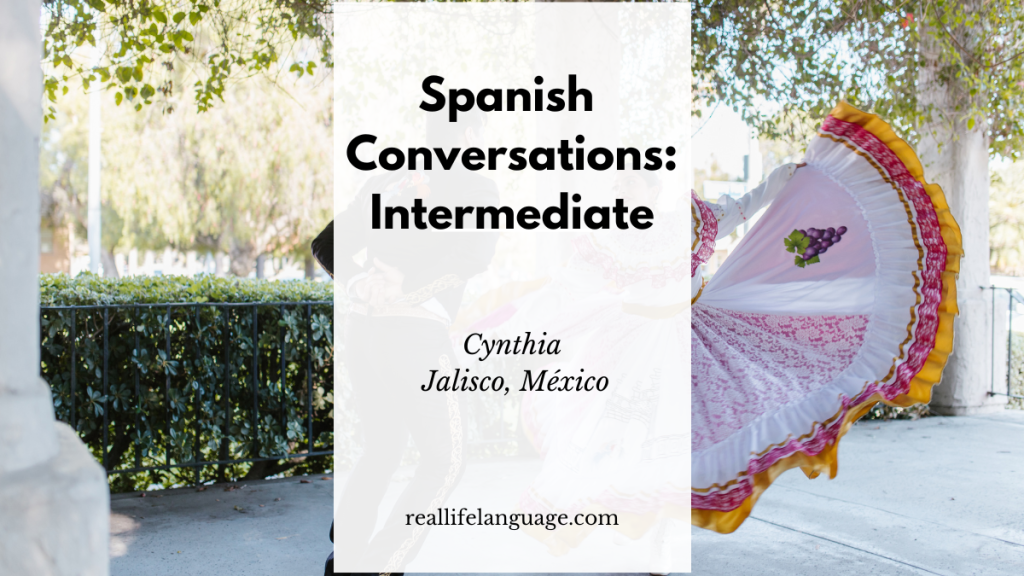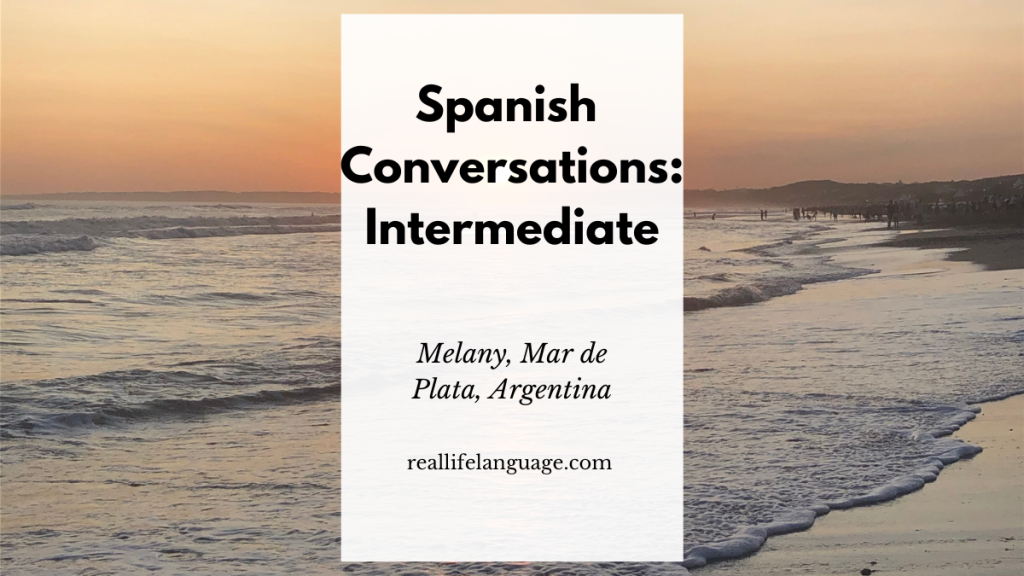This article summarizes an intermediate Spanish conversation featuring Mery, who lives in Tenerife. It is designed to help learners of Spanish pick up useful vocabulary, phrases, and cultural insights while practising listening and speaking skills. The original recording features natural, informal speech and touches on travel, daily life, culture, and opinions—perfect material to learn Spanish in context.
Outline
- Unforgettable travel experiences
- Weekend routines and leisure activities
- Personal descriptions and interests
- Plans for the future and travel goals
- Friendship, parties, and culture in Tenerife
- Health, services, and technology
- Language practice: key phrases and exercises
1. Unforgettable Travel Experiences
Mery describes an unforgettable trip to Mexico that turned into a four-year stay in the Riviera Maya. She highlights gastronomy, culture, friendly people and the weather as reasons she loved living there.
Useful phrases
- Un día inolvidable — An unforgettable day
- Me quedé cuatro años — I stayed four years
- Me encantó la gastronomía — I loved the cuisine
2. Weekend Routines and Leisure Activities
Mery explains a typical weekend: going to the beach with friends, having a barbecue, going out to dinner in touristy areas, and resting on Sunday. These everyday activities provide excellent listening practice because they include common verbs in past and present tenses.
Key verbs to spot and practice
- Ir (voy/fui) — to go
- Hacer (hacemos/hicimos) — to do/make (e.g., hacer una barbacoa)
- Descansar — to rest
3. Personal Description: Likes and Hobbies
Mery describes herself as someone who loves nature, beaches and mountains, walking her dog, reading on the beach, and travelling as much as possible.
Useful vocabulary
- Me gusta / Me encanta — I like / I love
- Pasear con mi perro — Walk my dog
- La montaña / la playa — Mountain / beach
4. Future Plans and Travel Goals
Her main wish for the future is to travel more—especially across Asia—and to enjoy peace of mind after pandemic restrictions. This section includes expressions for hopes and fears that are useful for conversations.
Useful expressions
- Espero que podamos viajar — I hope we can travel
- Ojalá no vuelvan a ocurrir cosas raras — Hopefully strange things won’t happen again
5. Friendship, Parties, and Culture in Tenerife
Mery emphasises that friends are like family. She also describes Tenerife as a party-friendly, touristy island with many festivals thanks to its mild climate. She notes that the island’s culture is strongly tied to nature—volcanoes, beaches and hiking—more than to museums or monuments.
Vocabulary and phrases about social life
- Ser como mi familia — To be like my family
- Zona turística — Tourist area
- Festival de música — Music festival
6. Gastronomy: The Canary Banana and Local Food
Mery mentions the Canary Islands’ famous bananas (Denominación de Origen). While she loves the islands, she feels the region doesn’t have the richest gastronomic reputation compared with some Spanish mainland regions.
Useful food words
- La banana canaria — Canary Islands banana
- Gastronomía — Cuisine
7. Health, Services, and Technology
Tenerife has limited hospital resources compared with major Spanish cities, but Spain’s public health system (la Seguridad Social) provides broad coverage. Mery also explains how technology became essential during the pandemic: she teaches online, created self-study Spanish courses, and uses social media to stay connected.
Important terms
- La Seguridad Social — Public health insurance
- Hospital — Hospital
- Cursos en línea — Online courses
8. Opinions on Employment and the Economy
Mery discusses how the pandemic and inflation have affected Spain, expressing concern about economic problems and policy decisions. This part models how to express opinions and economic vocabulary in Spanish.
Useful opinion phrases
- Creo que — I think that
- La situación es mala — The situation is bad
- Hay inflación — There is inflation
9. Practice Section: Phrases and Mini-Dialogues
To help learners of Spanish practice, here are short prompts and sample replies based on the conversation.
- Prompt: “¿Qué hiciste el fin de semana?”
“Fui a la playa con amigos y hicimos una barbacoa. El domingo descansé.”
- Prompt: “Describe un viaje inolvidable.”
“Fui a México y me quedé cuatro años. Me encantó la gastronomía y la gente.”
- Prompt: “¿Qué te gusta hacer en tu tiempo libre?”
“Me gusta caminar por la montaña, leer en la playa y pasear con mi perro.”
Conclusion: How to Use This Conversation to Learn Spanish
This conversational text is ideal for intermediate learners who want to learn Spanish naturally: listen for common verbs, practise the provided mini-dialogues, and memorise vocabulary tied to travel, leisure and daily routines. Rehearse answers to the prompts aloud, record yourself, and compare your pronunciation and grammar to native examples. Repeating this process will help learners of Spanish build confidence and fluency.
Quick tips
- Shadow the speaker: repeat sentences immediately after hearing them.
- Focus on verbs in past and present (ir, hacer, quedarse, descansar).
- Use the mini-dialogues to practise speaking with friends or tutors.
- Notice cultural references (la banana canaria, festivales) to add natural detail to responses.
100s of videos to learn Spanish:
https://real-life-language.kit.com/b1531a6404
Learn Spanish: Intermediate Conversation Practice — Honduras, Nature, City Life and Employment

